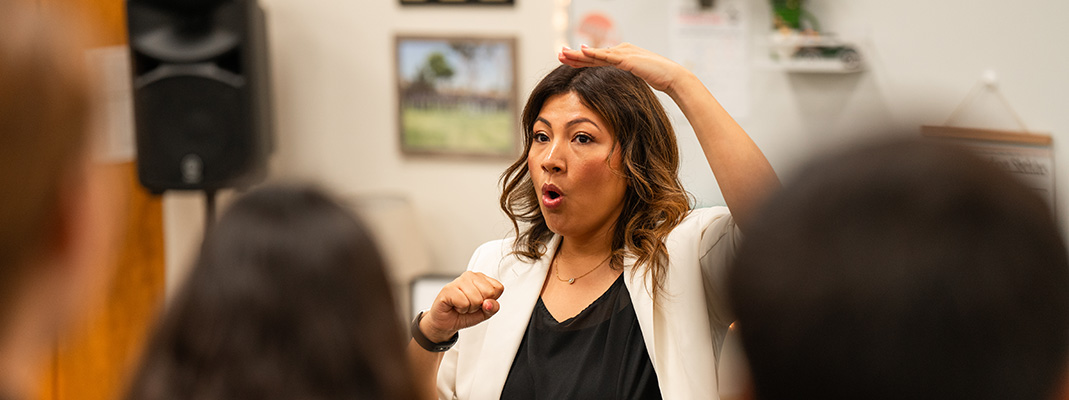Minor in Secondary Education

Overview
The Secondary Education minor, consisting of 20 credits, allows you to complete the majority of the requirements for earning a California Single Subject Preliminary Teaching Credential to teach a specific subject in middle school or high school. Subjects include English, mathematics, science, social science, art, music, Spanish and physical education. A semester of student teaching taken at the graduate level concludes the credential program. After completion of coursework and the associated requirements, you will be formally recommended for your California Single Subject Preliminary Teaching Credential. You can also receive your ACSI Teacher Certification while earning your California preliminary teaching credential by meeting additional requirements.
It is important to note that the Single Subject Credential is primarily appropriate for middle and high school teachers, but can sometimes be appropriate for elementary school teachers who are only teaching one subject.
Courses
Below are the course requirements for this academic program. In addition to these program-specific requirements, all majors include Biola's traditional undergraduate core curriculum. For more program details, including a sample course sequence, visit Biola's academic catalog.
Curriculum Requirements
Students must complete 20 credits to receive a Secondary Education minor.
The Secondary Education minor meets the majority of requirements for the California Preliminary Single Subject Teaching Credential. See the Professional Teacher Preparation section of the catalog under the Liberal Studies, Elementary Education, B.A. program. Students must consult with an advisor in the School of Education.
| Code | Title | Credits |
|---|---|---|
| Program Courses | ||
| Behavioral Science Coursework | ||
| PSYC 200 | Introduction to Psychology 1 | 3 |
| Teacher Preparation Coursework 2 | ||
| LEDU 301 | Introduction to Teaching | 3 |
| LEDU 330 | Psychological Foundations of Education | 3 |
| LEDU 341 | Methods of Teaching Linguistically Diverse Students | 3 |
| LEDU 425 | Secondary Content Area Reading | 3 |
| LEDU 433 | Single Subject Pedagogy | 2 |
| LEDU 438 | Secondary Curriculum, Differentiation, and Assessment | 3 |
| Total Credits | 20 | |
- 1
PSYC 200 will count toward the Core Curriculum requirement for Behavioral Science.
- 2
In order to apply the Teacher Preparation Coursework classes towards any California credential, students must earn at least a B- in each of these classes.